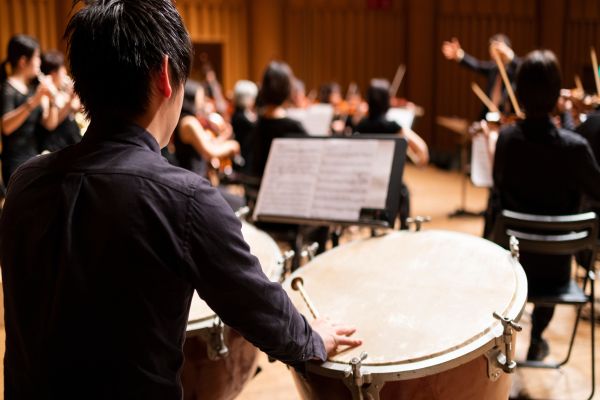Hailed as Italy’s greatest composer, Giuseppe Verdi was born in 1813 to a mother who was a spinner and a father who was an innkeeper. Verdi showed his musical talent early in life, but it was only at the age of 20, he got his break as a conductor at the Philharmonic Society in Busseto—besides doubling up as an organist.
At 23 he married and after 2 years Verdi went to Milan, where he completed his first opera, Oberto, in 1839. But during the period of working on Oberto, the composer was fraught with tragedies. He lost his two infant children in quick succession. The well-received Oberto was followed with a not-so-appreciated comic opera Un giorno di regno; which was painfully overshadowed by the death of his wife, when Verdi was just about 26 years old. Despite these huge setbacks early in life, Verdi would become the classic case study of achieving everlasting greatness by not allowing adversities to influence work over the course of one’s life.
It is difficult to easily name an opera composer, other than Verdi who has assembled such a varied and vivid portrait gallery: Rigoletto, evil jester and loving father; self-sacrificing Violetta of La Traviata and self-destructive Amneris of Aida; implacable Fiesco in Simon Boccanegra; the page Oscar in Ballo; the passionate Leonora of Trovatore and the tormented Leonora of Forza; the truly Shakespearean Lady Macbeth; and Verdi’s own Desdemona.
La traviata: ‘Brindisi’ (‘The Drinking Song’)
He created close to 30 operas over the course of his career, starting with Oberto and the final one being Falstaff. The hallmark of his operas was moving rapidly with unerring dramatic rhythm; thereby innovating a whole new musical vocabulary, which broadened the role of the orchestra without compromising the primacy of the voice. No wonder, generations of listeners worldwide, have loved Verdi’s melodies. Some of the greatest Verdi compositions are: La Forze Del Destino, Aida, Don Carlos, Falstaff, Il Trovatore, La Traviata, Otello, Rigoletto, Un Ballo In Maschera, Messa Da Requiem…
Nabucco: Va, pensiero (Chorus of the Hebrew Slaves)
Verdi’s heroes and heroines, who are often complex in their characterizations are placed in larger-than-life situations, forced to choose between moral duty and emotional desires; thereby creating some of the most nuanced works in the opera world. So much so, that he is credited with a style of baritone voice that had never existed previous to his arrival on the operatic scene.
Even though Verdi died way back in 1901 he still continues to be regarded as one of the greatest composers in history. More importantly, this master composer’s works have reportedly been performed more than any other performer worldwide.
Messa da Requiem: Dies Irae
The Vintage Guide to Classical Music comments thus: ‘The admiration and rewards Verdi found in his lifetime were almost unprecedented in music history, but no amount of success satisfied him as an artist. His five-decade career was marked by steady growth from the conventional blood-and-thunder melodramas and rumbustious orchestration of his early works to the Shakespearean depth and masterful scoring of his last two operas.’



